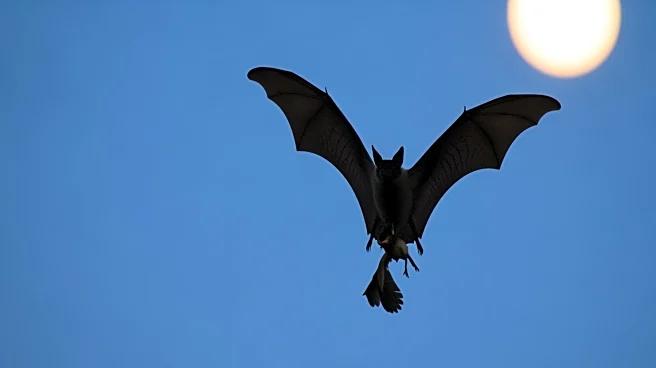What's Happening?
After 25 years of speculation, scientists have confirmed that Europe's largest bat, the greater noctule, preys on small songbirds during flight. Using biologgers, researchers recorded the bats' high-altitude hunting strategies, revealing their ability
to catch and consume birds mid-air. The study, published in Science, details how these bats use powerful echolocation to detect birds at long distances and execute high-speed dives to capture their prey. This discovery resolves a long-standing mystery about the noctule's diet, which was first suggested by the presence of bird feathers in their droppings.
Why It's Important?
This finding is significant for understanding the ecological role of the greater noctule bat, a rare and endangered species. The confirmation of their predation on birds highlights the complexity of nocturnal ecosystems and the bats' adaptation to hunting in darkness. This knowledge is crucial for conservation efforts, as it provides insights into the bats' behavior and habitat needs. The study also underscores the importance of technological advancements, like biologgers, in wildlife research, enabling scientists to gather data on elusive species and their interactions with the environment.
What's Next?
The research team plans to continue studying the greater noctule to further understand its ecological impact and inform conservation strategies. Protecting the bat's forest habitats is essential, as habitat loss poses a significant threat to their survival. Additionally, the study's findings may prompt further investigation into the interactions between nocturnal predators and migratory birds, potentially influencing conservation policies for both groups.
Beyond the Headlines
The study raises ethical considerations about the balance between predator and prey in natural ecosystems. While the predation of songbirds by bats may evoke empathy for the birds, it is a natural part of the ecological cycle. Understanding these dynamics is vital for developing effective conservation strategies that consider the needs of both predators and prey.















